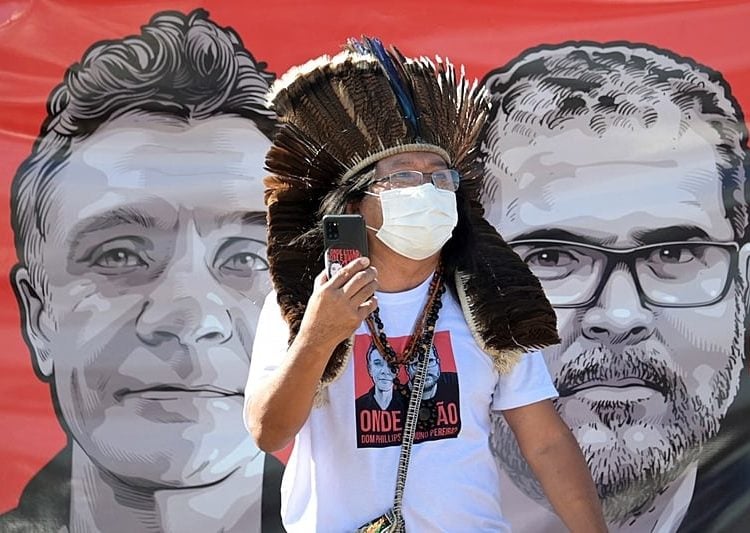A survey released this Wednesday (14) shows that human rights defenders were victims of 1,171 cases of violence in Brazil, including homicides, in the four years of Jair Bolsonaro's government (Liberal Party).
According to the study “On the Front Line: violence against human rights defenders in Brazil”, prepared by the organizations Terra de Direitos and Justiça Global, between 2019 and 2022, territorial and environmental struggles were the main reasons for violence. The Legal Amazon was the region of the country with the highest number of murders and threats.
In an interview with Brasil de Fato, the associate director of Justiça Global, Daniele Duarte, highlighted that Brazil “is a highly hostile country for those who defend human rights”. In the case of the Amazon, she highlighted that the region has a large group of defenders and that criminal and illegal companies and organizations look to that space.
:: Lula faces possible changes of ministers to shield the environmental agenda in the Congress ::
“It is a space rich in biodiversity, and also in high impunity in cases of violence in that territory. During the research period, during the government of former President Bolsonaro, we saw an increase in the interest of organizations and companies in this territory, in areas such as mining and deforestation and even criminal organizations”, she highlighted.
Defenders of indigenous peoples were the targets of most of the cases. There were 346, including 50 murders and 172 threats in the last four years, when the government then headed by Bolsonaro adopted an anti-indigenous policy that made it possible to increase the invasion and exploitation of traditional territories, mining, deforestation and agribusiness.
Among the emblematic cases cited by the report released this Wednesday are the murders of indigenist Bruno Pereira and British journalist Dom Phillips, in June 2022, in the Indigenous Land of Vale do Javari, in the state of Amazonas. The crime would have been motivated by Bruno's work in denouncing illegal fishing in indigenous territory.
:: Lula's government approval: 37% of the Brazilian population is satisfied, according to Ipec ::
The survey divides violent episodes into eight categories: threat, physical aggression, murder, attack, criminalization, delegitimization, sexual harassment and suicide. Cases of individual and collective violence were considered, such as attacks against indigenous peoples and quilombolas.
Cases of threats were the most numerous: according to the survey, there were 579. As this type of crime is not always investigated, it tends to be repeated and, often, to become more serious.
“We have high levels of threat, especially against female defenders, cisgender women and trans women, and this threat as a strategy, a tool to finance political action. Impunity, the lack of investigation into threats generate more threats and unfortunately, many times, these threats will result in murders”, Daniele Duarte explained.
:: Commission of Inquiry on January 8 acts begins this Tuesday (6) with a vote on the work plan ::
The survey published this Wednesday was developed based on news, consultations with other reports and research of cases followed by the organizations that coordinate the research. Despite the alarming data, cases may be even more numerous, since underreporting is a reality.
“Those who practice violence and violate human rights are people and companies that exercise and have power in that territory, in that city. This also means that there is a direct influence so that the case is not made visible and is not investigated”, added Duarte.




